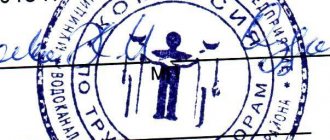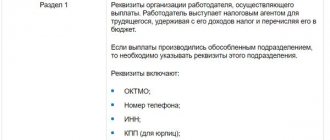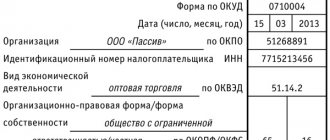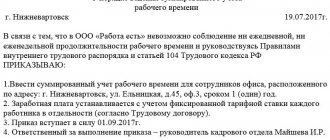In the modern world, employers often use the labor of citizens without drawing up employment contracts with them; at best, they enter into one-time civil law contracts or “oral contracts.” As judicial practice shows, this is most often practiced by employers represented by individual entrepreneurs.
How in court to recognize as labor relations the work performed by citizens on the basis of civil contracts or without contracts, we will consider this using examples from judicial practice.
Judicial practice of recognition of labor relations.
When a citizen performs work for an organization or individual entrepreneur on the basis of a GPC agreement or without an agreement, he loses:
- rights to annual paid leave;
- rights to leave without pay;
- rights to receive bonuses;
- the right to free travel once every two years on the basis of Article 325 of the Labor Code of the Russian Federation;
- rights to benefits for temporary disability;
- Etc.
When any friction or disputes arise between the Customer and the Work Contractor under the GPC agreement, or the Work Customer violates the terms of such an agreement, incl. upon payment for the work performed by the Contractor, the citizen is faced with the question of what is best to do in such situations:
- come to terms with;
- litigate over non-payment by the Customer for work performed;
- recognize in court relations related to the use of personal labor and arising on the basis of a civil contract as labor relations.
In order for a citizen to go to court with a claim for recognition of relations related to the use of his personal labor and arising on the basis of a civil contract as labor relations, appropriate grounds and appropriate evidence are needed, based on the provisions of Articles 55, 59, 60 of the Civil Procedure Code Code of the Russian Federation (hereinafter referred to as the Code of Civil Procedure of the Russian Federation).
Plenum of the Supreme Court of the Russian Federation in paragraph 8 of Resolution No. 2 of March 17, 2004 “On the application by the courts of the Russian Federation of the Labor Code of the Russian Federation” (as amended by Resolution of the Plenum of the Supreme Court of the Russian Federation dated November 24, 2015 N 52)
explained that:
“If an agreement of a civil law nature is concluded between the parties, but during the trial it is established that this agreement actually regulates the labor relations between the employee and the employer, the provisions of labor legislation and other acts must be applied to such relations by virtue of part four of Article 11 of the Labor Code of the Russian Federation containing labor law norms."
When courts consider such claims, they apply not only the provisions of the Labor Code of the Russian Federation, but also the explanations of the Plenums of the Supreme Court of the Russian Federation dated March 17, 2004 No. 2, dated May 29, 2018 No. 15 “On the application by courts of legislation regulating the labor of workers working for employers - individuals and for employers - small businesses that are classified as micro-enterprises"
.
In paragraph 17 of Resolution No. 15 of May 29, 2018, the Plenum of the Supreme Court of the Russian Federation explained that:
“At the same time, the courts must not only proceed from the presence (or absence) of certain formalized acts (civil contracts, staffing schedules, etc.), but also establish whether in reality there were signs of labor relations and an employment contract indicated in Articles 15 and 56 of the Labor Code of the Russian Federation, whether the employee was actually admitted to perform a labor function. The characteristic features of labor relations in accordance with Articles 15 and 56 of the Labor Code of the Russian Federation include: the parties reaching an agreement on the personal performance by the employee of a certain, predetermined labor function in the interests, under the control and management of the employer; the employee’s subordination to the employer’s internal labor regulations and work schedule (shift); provision of working conditions by the employer; performance by an employee of a labor function for pay. The existence of an employment relationship can be evidenced by the stable and stable nature of these relationships, the subordination and dependence of labor, the employee’s performance of work only in a certain specialty, qualification or position, the presence of additional guarantees for the employee established by laws and other regulations governing labor relations. Signs of the existence of an employment relationship also include, in particular, the employee’s performance of work in accordance with the instructions of the employer; integration of the employee into the organizational structure of the employer; recognition by the employer of employee rights such as weekly days off and annual leave; payment by the employer of expenses associated with the employee’s travel in order to perform work; making periodic payments to the employee, which are his only and (or) main source of income; provision of tools, materials and mechanisms by the employer (Recommendation No. 198 on the employment relationship, adopted by the General Conference of the International Labor Organization on June 15, 2006).”
In paragraph 18 of Resolution No. 15 of May 29, 2018, the Plenum of the Supreme Court of the Russian Federation also explained that:
“When resolving the issue of whether there were labor relations between the parties, the court, by virtue of Articles 55, 59 and 60 of the Code of Civil Procedure of the Russian Federation, has the right to accept any means of proof provided for by procedural legislation. Such evidence, in particular, may include written evidence (for example, an issued pass to the employer’s territory; a log of employees’ arrival and departure to work; documents of the employer’s personnel activities: work schedules (shifts), vacation schedules, documents on sending an employee on a business trip , on assigning fire safety responsibilities to the employee, an agreement on the employee’s full financial responsibility; payroll sheets, statements of cash disbursements, information about the transfer of funds to the employee’s bank card; documents of the employer’s business activities: sales documents filled out or signed by the employee invoices, invoices, copies of cash books on revenue received, waybills, applications for cargo transportation, certificates of work performed, visitor log, correspondence of the parties to the dispute, including by e-mail; labor protection documents, such as: registration log and conducting instructions at the workplace, certificates of testing knowledge of labor protection requirements, sending an employee for a medical examination, a certificate of medical examination of the employee, a card for a special assessment of working conditions), witness statements, audio and video recordings and others.”
Example 1 from judicial practice
.
F.I.O. filed a statement of claim with the Petrogradsky District Court of St. Petersburg. to LLC "Center-VK" on establishing the fact of labor relations, collecting arrears of wages, compensation for unused vacation, compensation for delayed payments, compensation for causing moral damage.
The essence of this matter
.
The Plaintiff applied to Center-VK LLC for a part-time job as a carpenter and electrician in dormitory No.... An employment contract was concluded with the General Director of Center-VK LLC, which was signed by the Plaintiff and the Defendant, but the Plaintiff received a copy of this employment contract no contract was issued. From March 13, 2020 to March 2020, the Plaintiff regularly performed his duties, and the Defendant paid him through an individual (an employee of Center-VK LLC) not regularly and not in full, wages to his bank card. In court, the Plaintiff’s interests were represented by a lawyer on the basis of a GPC agreement, who helped the Plaintiff provide the necessary evidence to the case file, incl. question witnesses who confirmed the Plaintiff's claims.
By the decision of the Petrogradsky District Court of St. Petersburg dated 07/09/2019 in case No. 2-1518/2019
The Claimant's claims were partially satisfied:
1 To establish the fact of labor relations between the Plaintiff and LLC "Center-VK" in the period from 03/13/2017 to 03/13/2018 in the position of electrician and carpenter.
2 To recover from LLC "Center-VK" in favor of the Plaintiff arrears of wages in the amount of 168,000 rubles, compensation for unused vacation - 32,647.44 rubles, compensation for delayed payment of wages - 55,123.65 rubles, compensation moral damage in the amount of 3000 rubles. (although the Plaintiff asked to recover 10,000 rubles).
Example 2 from judicial practice.
F.I.O. filed a statement of claim with the Oktyabrsky District Court of Arkhangelsk. to LLC "Status" to recognize the relationship that developed with the Defendant in the period from 03/20/2019 to 05/05/2019 as labor, to recover from the Defendant arrears of wages, compensation for unused vacation, interest for delayed payments, compensation for moral damage in the amount of 15,000 rubles, impose on the Defendant the obligation to make an entry in the work book about hiring as a master of industrial driving training category “B” on March 20, 2020 and about dismissal at his own request on May 05, 2020, submit corrective reports to the Mandatory Funds, issue a 2-NDFL certificate.
The essence of this matter.
The plaintiff, following an advertisement on the Internet, applied to Status LLC for a job. When he was hired, they explained to him that his salary would be 40,000 rubles. per month. An employment contract was not concluded with him, and the employment record was not entered into the work book either. He stopped working on May 5, 2020 due to the Respondent’s unwillingness to enter into a written employment contract with him.
During the trial, the Defendant did not agree with the claims and provided the case file with a GPC agreement signed only by the director of Status LLC, which the judge rejected as evidence. The Plaintiff's representative, represented by a lawyer, helped provide the necessary written evidence in the case file, and the court also questioned witnesses who confirmed the Plaintiff's claims and arguments.
By the decision of the Oktyabrsky District Court of Arkhangelsk dated July 16, 2019 in case No. 2-3258/2019
The Claimant's claims were partially satisfied:
1 Recognize the relationship that developed between Status LLC and the Plaintiff during the period from 03/20/2019 to 05/05/2019 as labor.
2 Assign LLC “Status” the obligation to make an entry in the Plaintiff’s work book about hiring on March 20, 2019 for the position of industrial training foreman for training drivers of vehicles of category “B”, about dismissal on May 5, 2019 on the basis of clause 3 Part one of Article 77 of the Labor Code of the Russian Federation, issue the Plaintiff with a 2-NDFL certificate.
3 To recover from Status LLC in favor of the Plaintiff wage arrears in the amount of 32,892.87 rubles, compensation for unused vacation in the amount of 9,779.32 rubles, interest in the amount of 2,947.46 rubles, compensation for moral damage in the amount of 1000 rub.
4 Assign LLC “Status” the obligation to provide the Pension Fund of the Russian Federation, the Social Insurance Fund of the Russian Federation, the Federal Medical Insurance Fund of the Russian Federation, the Federal Tax Service of the Russian Federation with information about the period of work of the Plaintiff at LLC “Status” in the period from 03.20.2019 to 05.05. 2019
Example 3 from judicial practice.
F.I.O. filed a claim with the Solikamsk City Court of the Perm Territory. to IP Pliner A.E. on the recovery of remuneration for work, compensation for moral damage in the amount of 15,000 rubles.
The essence of this matter.
At the beginning of March 2020, the Plaintiff saw an advertisement in the newspaper “Our Solikamsk” that the Defendant was looking for sellers for his store. On the same day, the Plaintiff approached the Defendant about hiring her as a salesperson in a store and was hired without an employment contract. The next day she worked as a salesperson in the Defendant’s store on a 2/2 schedule together with another salesperson, full name. The defendant partially paid her wages, but refused to pay the rest, citing a lack of money.
The defendant did not admit the claims; in court he stated that he did not know the Plaintiff, did not enter into an employment contract with him, and did not draw up a work book. These objections of the Defendant to the claim contradicted the evidence presented by the Plaintiff (work schedule indicating the Full Name of the Plaintiff, witness statements, etc.).
By the decision of the Solikamsk City Court of the Perm Territory dated August 15, 2019 in case No. 2-1381/2019
The Claimant's claims were partially satisfied:
1 To recover from individual entrepreneur Pliner A.E. in favor of the Plaintiff, arrears of wages for March 2020 in the amount of 5,000 rubles, compensation for moral damage in the amount of 1,000 rubles, in total - 6,000 rubles.
Example 4 from judicial practice.
F.I.O filed a statement of claim with the Central District Court of Chelyabinsk. to Topkran LLC on the establishment of labor relations, the collection of wages, compensation for late payment of wages, compensation for moral damage in the amount of 15,000 rubles.
The essence of this matter.
The plaintiff worked at Topkran LLC on the basis of a GPC agreement; payment for the work was indicated in the agreement in the amount of 250 rubles. per hour of work based on shift work orders. Despite the fact that upon hiring, contract agreements were concluded between him and the defendant, he believes that these contracts are labor contracts, since over the course of time he performed the same functions, under the same conditions, at a specific workplace with a certain payment labor. For the entire period of work, the plaintiff was paid a salary in the amount of 363,200 rubles. According to the plaintiff, the employer violates his labor rights, did not fully pay him wages, and therefore suffered moral damage.
By the decision of the Central District Court of Chelyabinsk dated September 25, 2019 in case No. 2-3077/2019
The Claimant's claims were partially satisfied:
1 Recognize the relationship between the Plaintiff and Topkran LLC as labor relations.
2 To recover from Topkran LLC in favor of the Plaintiff - 198,833 rubles. 28 kopecks, including wage arrears in the amount of 150,050 rubles, interest for late payment of wages in the amount of 45,783 rubles. 28 kopecks, compensation for moral damage in the amount of 3,000 rubles.
Deadlines for filing a claim
| Subject of dispute | Deadline for going to court | Calculation of the term |
| About illegal dismissal, reinstatement | 1 month | From the date of delivery of a copy of the dismissal order or from the date of issue of the work book, or from the date of refusal to receive them |
| Dispute regarding non-payment or incomplete payment of wages and other payments, including final settlement | 1 year | From the date of payment of the specified amounts |
| Other individual labor dispute | 3 months | From the day when the employee learned or should have learned about the violation of his rights |
The court does not have the right to refuse to accept a claim due to missing the filing deadline. Often the reason for the delay is the employee waiting for a decision from the labor dispute commission, assistance from the state labor inspectorate or assistance from the prosecutor's office, however, all these legally significant actions are not an obstacle to filing a claim on labor law in court; a settlement agreement is concluded at any stage of the consideration of the case . The issue of missing a deadline is considered only upon the application of the defendant.
The court has the right to restore the deadline if the reasons for absence are valid, including incapacity for work, illness of loved ones, business trips to areas remote from the place of residence, force majeure. The listed circumstances must be confirmed by documents - certificates from the relevant institutions, an extract from the hospital, copies of personnel documents from the place of work.










